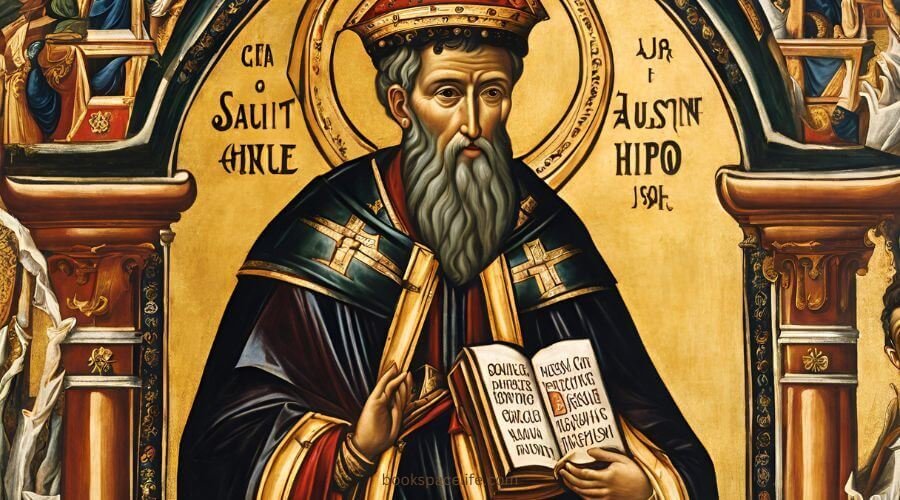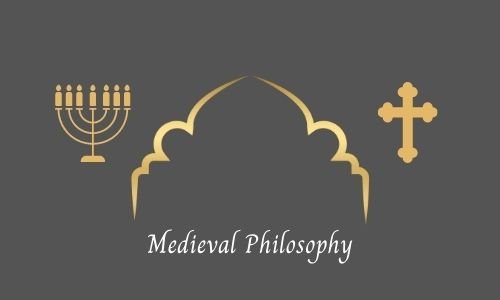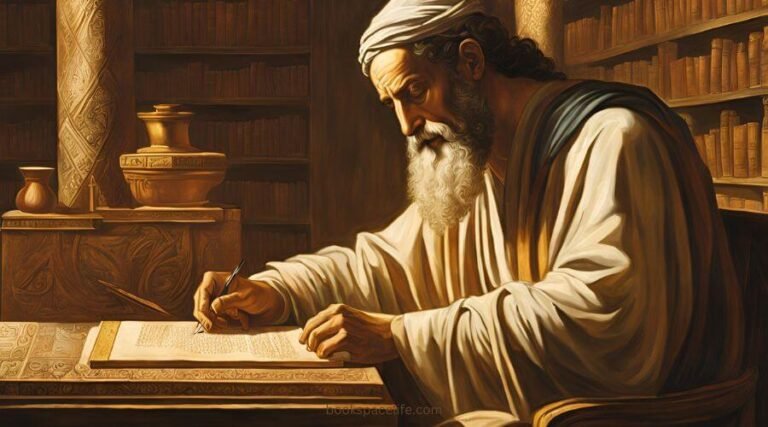St. Augustine of Hippo
St. Augustine of Hippo : The Life, Philosophy, and Enduring Legacy of a Christian Philosopher
St. Augustine of Hippo (354 to 430 CE), born Aurelius Augustinus, stands as one of the most influential Christian philosophers in Western thought.
His journey from a troubled youth to a revered theologian and philosopher marks him as a symbol of spiritual transformation and intellectual depth.
Augustine’s writings, particularly Confessions and The City of God, continue to resonate today, offering insights into the human soul, the nature of God, and the path to redemption.
Table of Contents
(1) Early Life and Education
St. Augustine was born in Thagaste, a Roman province in North Africa (modern-day Algeria), to a mixed-religion family.
His father, Patricius, was a pagan and a Roman official, while his mother, Monica, was a devout Christian who would later be canonized as a saint.
Monica’s influence on Augustine was significant, though Augustine initially rejected Christianity and explored other philosophical paths.
Augustine’s early education in Thagaste and later in the larger city of Carthage exposed him to Latin literature, rhetoric, and philosophy, especially the works of Cicero.
His study of rhetoric, designed for a career in law or public speaking, introduced him to the classical ideals of reason and persuasive communication.
However, his early years were also marked by a hedonistic lifestyle, which he later described in Confessions as “a cauldron of illicit loves.”
(2) Augustine’s Search for Truth: Travels and Philosophical Exploration
In his early twenties, Augustine became captivated by Manichaeism, a religious movement blending elements of Christianity, Zoroastrianism, and Gnosticism, which offered a dualistic view of good and evil.
Manichaeism promised answers to Augustine’s questions about the nature of evil, a central concern throughout his life.
Augustine followed this faith for nearly a decade, and his adherence to it allowed him to navigate circles of intellectuals in Carthage.
Eventually, however, he grew disillusioned with Manichaeism’s failure to explain his spiritual yearnings. Augustine then traveled to Rome in 383 and later to Milan, where he encountered Neoplatonism.
The writings of Plotinus and other Neoplatonic thinkers helped Augustine envision a metaphysical hierarchy, where God was the source of all goodness and beauty, reconciling his struggle with the concept of evil.
During his time in Milan, he also met St. Ambrose, the Christian bishop who would become his mentor.
Ambrose’s eloquence and intellectual approach to scripture impressed Augustine deeply, sparking his interest in Christianity as an intellectually serious pursuit.
In a moment he famously described as “tolle lege” (Latin for “take up and read”), Augustine turned to the Bible, and this encounter ultimately led to his conversion.
(i) Conversion and Christian Philosophy
At the age of 32, after a profound internal struggle described in his Confessions, Augustine was baptized by Ambrose in 387.
From this point on, Augustine’s life took a turn toward asceticism, reflection, and an intense study of Christian theology.
He returned to Africa in 388, where he established a monastic community and focused on writing and teaching.
Augustine’s philosophical reflections centered on themes of God, the human will, knowledge, and the nature of evil.
In contrast to the classical view that evil was a substantive force, Augustine proposed that evil is the absence of good—a privation of being rather than an entity in itself.
This concept allowed him to affirm the goodness of God and God’s creation while acknowledging the existence of evil as a result of human free will.
His thoughts on free will and predestination would become particularly influential in later theological debates.
(ii) Major Works: Confessions and The City of God
Two of Augustine’s works stand as pillars in Christian philosophy: Confessions and The City of God. Confessions, written as a series of personal reflections, is often considered the first Western autobiography.
It explores Augustine’s journey of faith and repentance, providing a window into the inner life of a philosopher struggling with sin, faith, and understanding.
This text not only offers a timeless reflection on human nature and spirituality but also serves as a meditative work on the nature of memory, time, and consciousness.
The City of God, on the other hand, addresses the role of Christianity in a world of turmoil. Written in response to the sack of Rome in 410 by the Visigoths, the work offers a dualistic vision of two “cities”: the City of God and the earthly city. Augustine argued that Christians belong to a higher, eternal city—the City of God—and should not place their ultimate hope in the political structures of the earthly city.
This distinction between the temporal and the eternal offered solace and guidance for Christians living in the volatile era of the declining Roman Empire.
(3) Augustine’s Influence on Western Thought and Theology
Augustine’s ideas on original sin, grace, and the relationship between faith and reason have profoundly shaped Christian theology.
His doctrine of original sin, which emphasizes humanity’s fallen nature and dependence on divine grace for salvation, became a cornerstone of Western Christianity.
The Catholic Church, the Orthodox Church, and various Protestant denominations all regard his writings as central to their theological foundations.
Augustine also significantly influenced the development of Western philosophy, particularly through his synthesis of Christian thought with Neoplatonic principles.
His understanding of God as the ultimate truth and reality laid the groundwork for medieval philosophers such as Thomas Aquinas.
His works were later revisited during the Reformation, where his concepts of grace and predestination became pivotal in shaping the doctrines of major reformers like Martin Luther and John Calvin.
(4) Legacy and Impact
Augustine’s influence extends beyond theology into psychology, ethics, and political theory.
His exploration of inner motives, will, and the psychological dynamics of sin in Confessions prefigures modern notions of introspection and self-identity, impacting philosophers and writers from Descartes to existentialists like Kierkegaard.
In political theory, Augustine’s City of God created an early framework for the separation of church and state, inspiring centuries of thought on the role of faith in public life.
Augustine’s dichotomy between the City of God and the earthly city echoed in discussions of civil society and influenced later thinkers on the importance of ethical governance and the limitations of political authority.
(5) Conclusion: Augustine’s Enduring Relevance
St. Augustine of Hippo’s life is a powerful testament to the possibility of personal transformation and the enduring search for truth.
His works continue to inspire not only Christians but anyone wrestling with questions about the nature of existence, ethics, and the human soul.
Augustine’s legacy endures because he addressed universal concerns with intellectual honesty, theological depth, and poetic insight. His influence across centuries reveals a mind deeply engaged with life’s mysteries and one unafraid to bridge reason with faith, making him a central figure in the story of Western thought.
St. Augustine of Hippo’s writings remain relevant, offering wisdom on everything from personal ethics to theological reflections. His journey illustrates the lifelong search for meaning, leaving a legacy that shapes both faith and philosophy across the ages.








